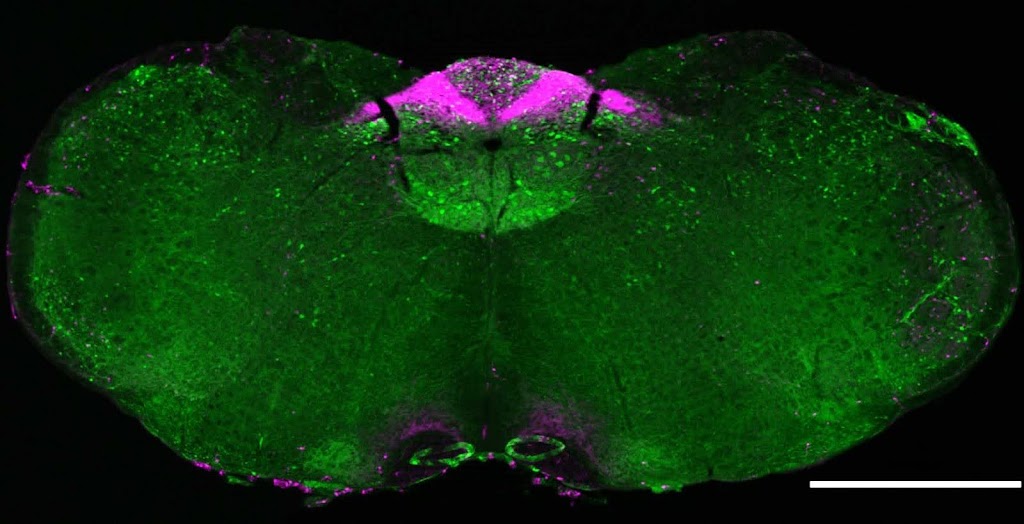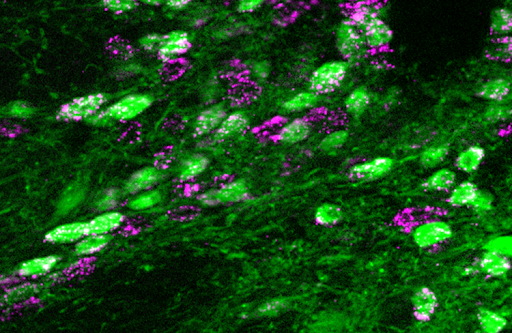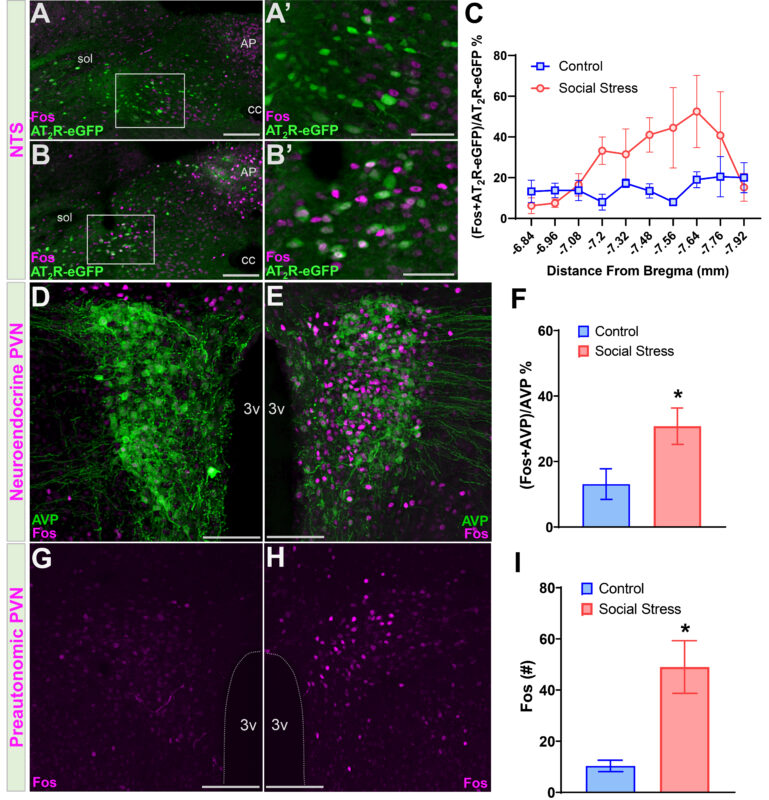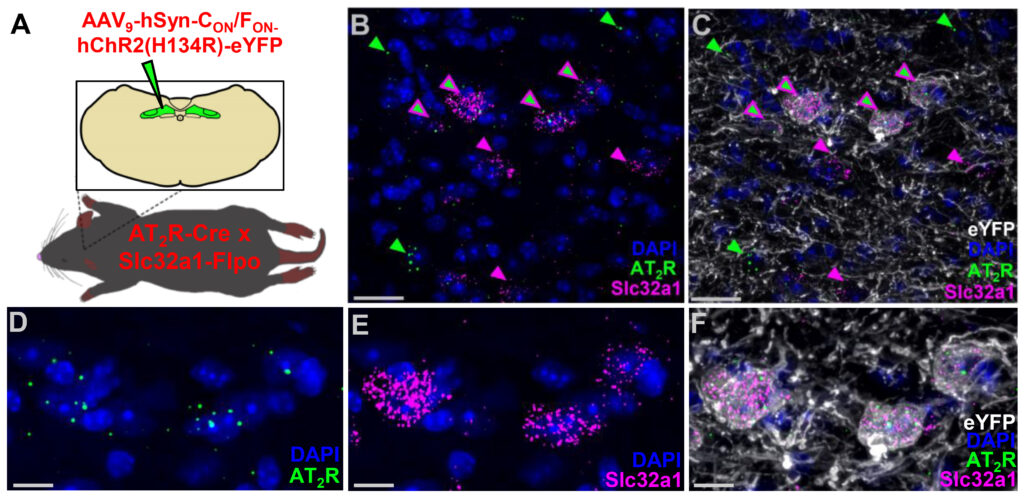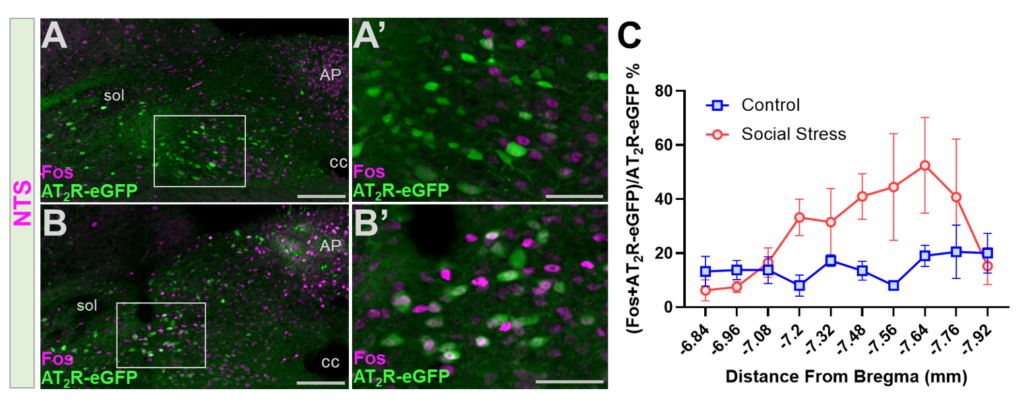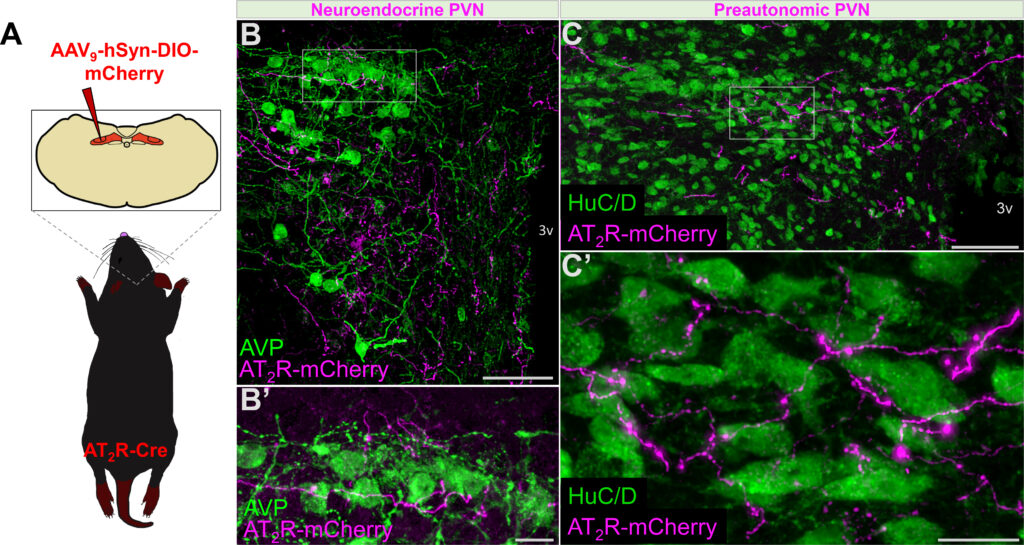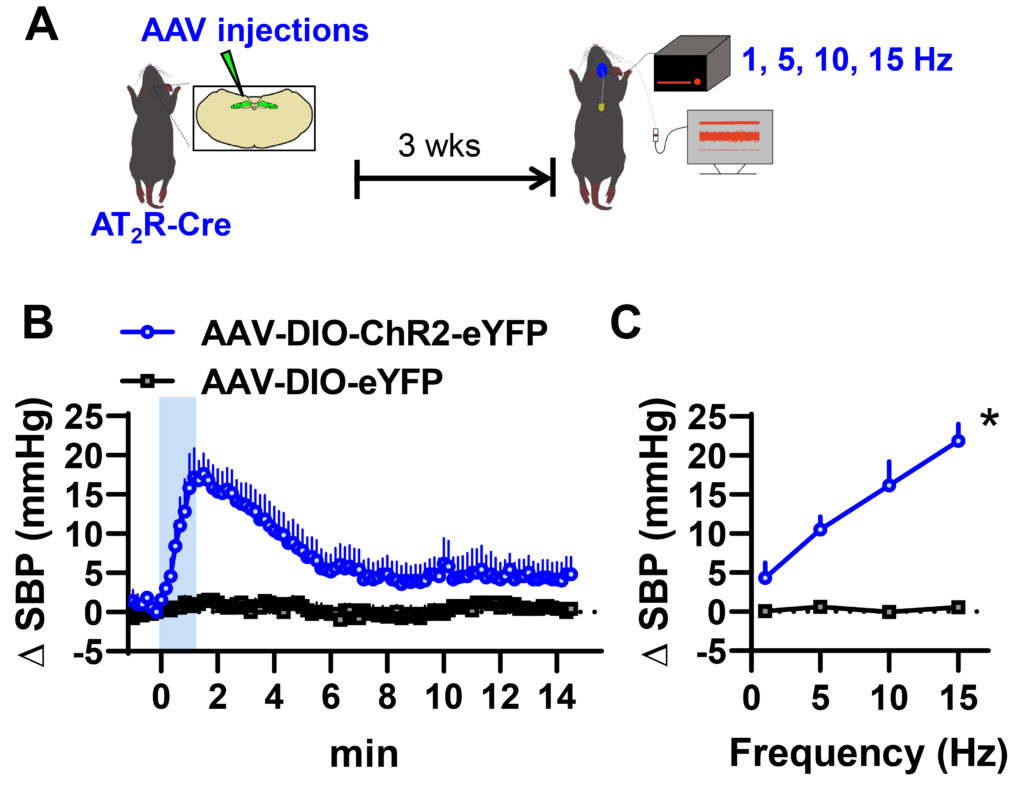Why do marginalized populations that experience discrimination and social adversity have increased incidence of cardiometabolic disease?
Summary:
This project examines how social adversity may impact neurons in the nucleus of the solitary tract that express angiotensin type-2 receptors and regulate blood pressure. The hypothesis is that disruption within this neural circuit contributes to hypertension, and it may therefore be targeted to treat the disease, particularly in the setting of social adversity.
Details:
The nucleus of the solitary tract (NTS) is an important hindbrain nucleus that receives and integrates input arising from within the body and information transmitted from higher order brain regions to mount physiological and behavioral responses that meet the demands of the internal and external environments. Our previous studies revealed that social adversity induced by the chronic subjugation to low social status causes profound hypertension that is associated with disruptions in a specific population of neurons of the NTS (i.e., those expressing angiotensin type 2 receptors). We have also previously found that these angiotensin-sensitive NTS neurons regulate blood pressure (PMID: 33723600). This area of research tests the overall hypothesis that neurons within the NTS that express angiotensin type 2 receptors can be targeted to alleviate the hypertension that accompanies social adversity.
This project is supported the National Heart Lung and Blood Institute (see: https://reporter.nih.gov/search/G7ROLh0AX0aahsm0ePx-Xg/project-details/10993723).
